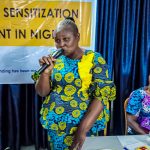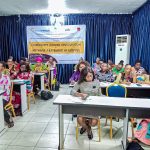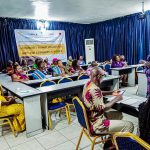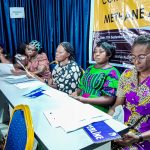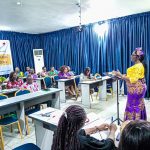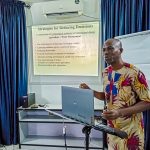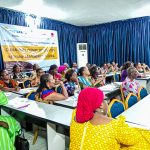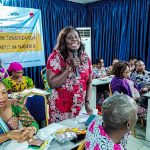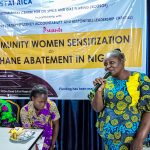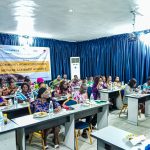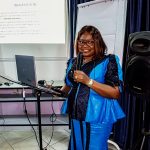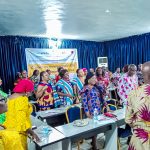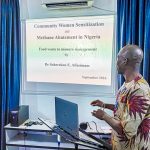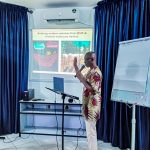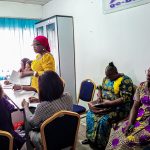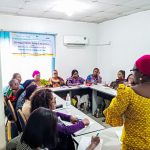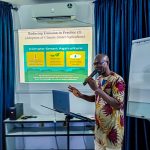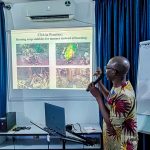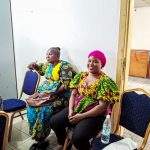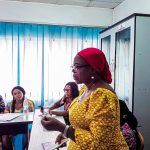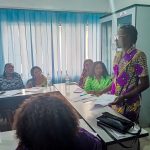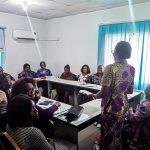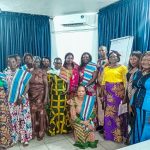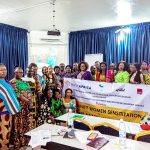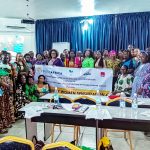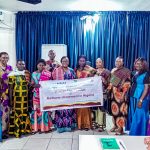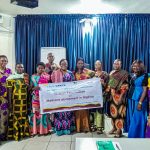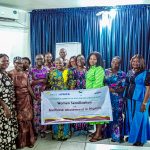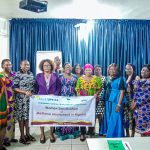In the battle against climate change, methane emissions have become a growing concern, and experts are pointing to rural women as key players in reducing these emissions. With 45% of methane emissions being anthropogenic, primarily stemming from agricultural activities and waste mismanagement, the role of rural women, especially farmers, is increasingly recognized. Women in these communities are positioned to lead the charge, as they directly engage with the practices that can mitigate methane release.
Recognizing this potential, a coalition of non-state actors has formed in the south-south region of Nigeria, mobilizing rural female farmers and teachers to spearhead efforts against methane emissions. This initiative is part of the broader Methane Plan of Action and is backed by the Environmental Centre for Oil Spills and Gas Flaring (ECOSGF) in collaboration with the African Initiative for Transparency, Accountability, and Responsible Leadership (AfriTAL). A one-day sensitization program, held on September 11, 2024, in Port Harcourt, marked a significant step in this campaign.
Mrs. Faustina Peter-Kio, representing ECOSGF, stressed that rural women are central to the fight against methane emissions. She explained that educating these women on the environmental impact of methane and smart farming practices could lead to improved crop yields and better food security. Rural farmers, particularly in regions like Taraba State, have experienced the damaging effects of methane emissions on agriculture, including failed tomato harvests. By introducing alternative farming techniques and promoting waste-to-manure conversion, women can both protect their crops and contribute to reducing methane emissions.
Female teachers are also being equipped to educate the next generation on methane mitigation strategies. By reviving school farms and forming environmental clubs, these educators are playing a dual role in combating climate change and ensuring food security in their communities.
Dr. Louis Ogbeifun, Executive Director of AfriTAL, emphasized the importance of a multisectoral approach in raising awareness about methane’s adverse effects. Methane, a colorless and odorless greenhouse gas, poses significant risks if not properly managed. Dr. Ogbeifun pointed out that while methane can be harnessed for economic benefits, such as electricity generation, its unchecked release into the atmosphere contributes to air pollution, health problems, and climate change.
The collaboration between ECOSGF, AfriTAL, and other partners is geared toward equipping women, civil society organizations, and other stakeholders with the tools to advocate for methane reduction. Sensitization programs like the one in Port Harcourt are part of a larger effort to foster public consciousness about methane emissions at various levels of society.
The breakout sessions during the Port Harcourt event provided tailored discussions for farmers and teachers. Participants learned practical ways to manage food waste, convert it to manure, and advocate for methane reduction within their communities and schools. For instance, teachers like Bariture Nnee from Rivers State University Staff School expressed their commitment to educating students about methane emissions and integrating waste management into school farming activities.
Similarly, rural farmers, like Ngbar Lezina from Tai LGA, plan to take the knowledge back to their communities, further extending the reach of the program. Lezina expressed gratitude for the capacity-building training and pledged to implement the smart farming techniques she learned.
Rural women are essential in the global effort to reduce methane emissions. Through education, advocacy, and practical farming innovations, they are becoming the arrowhead in the fight against methane emissions. With continued support from environmental organizations and government protocols, these women are not only improving their livelihoods but also contributing to the broader goal of mitigating climate change.


